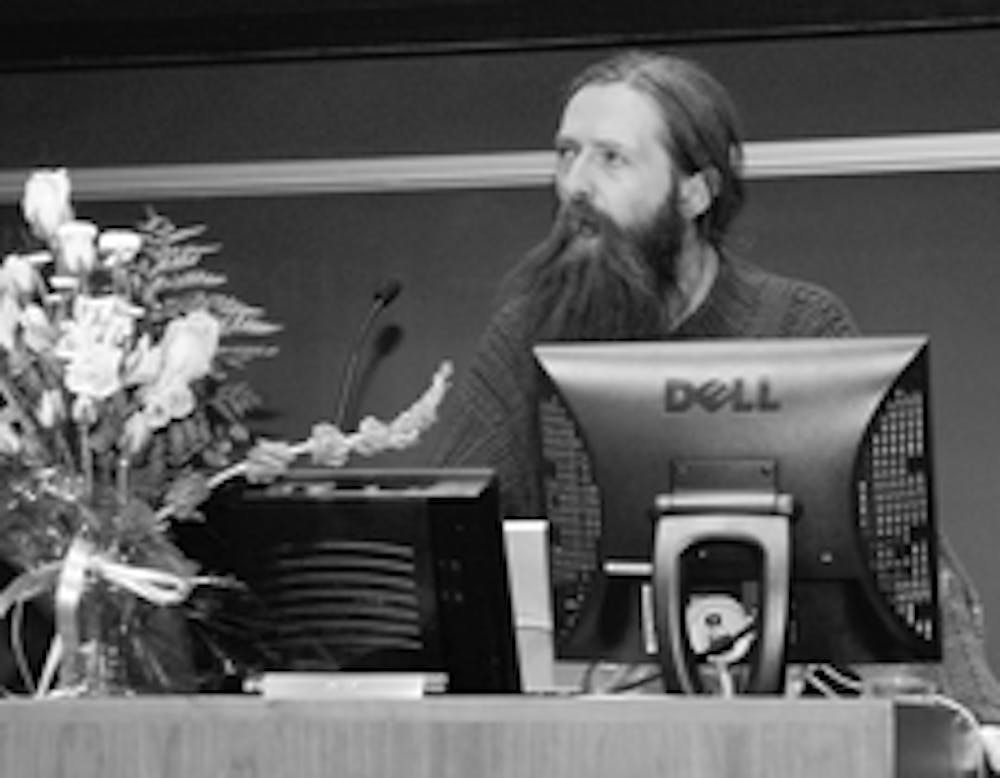
Actor Woody Allen once quipped, "I don't want to achieve immortality through my work. I want to achieve it through not dying." His wish might just come true.
Aubrey de Grey of Cambridge University, author of Mitochondrial Free Radical Theory of Aging and Ending Aging, spoke yesterday in Levine Hall about the possibility of indefinitely preventing aging.
Sporting a lengthy beard, de Grey started by asking "What is aging in the first place?"
Aging is a disease, he said, in a sense that the accumulation of "junk" such as foam cells, which are a derivative of cholesterol, damages the body. This buildup results in the failure of the body's functions.
Presently there are two approaches in addressing aging. The first, the gerontology approach, seeks to improve the efficiency of metabolism. The approach is difficult, de Grey said, because "we don't understand metabolism very well, in fact, hardly."
The second approach is geriatric, studying pathologies that evolve after the "damage" has already occurred. De Grey dismissed this approach as well, comparing it to "trying to hold back the sands of time."
De Grey introduced a third "engineering approach" that would allow metabolism to proceed without hindrance followed by repair.
"We don't need to improve metabolism," he said, just clean up the junk resulting from the foam cells.
Operating on the basis that "repair is better than retardation," de Grey said, the engineering approach incorporates the central theme of "robust human rejuvenation," which reverses the aging process through a series of gene therapies.
Each therapy would increase the lifespan of a person by 20 years.
"If we were mice, that would be the end of [the] story," he said. "I am not known for adding thirty years" to the individual's lifespan but rather a thousand years so that people would "live indefinitely."
Methods such as stem cell therapy are currently under active research, but as for other methods, he said, "that's why you need the book."
In the end, de Grey acknowledged that the this was a "very ambitious approach" but that it also provided "enormous potential."
The Daily Pennsylvanian is an independent, student-run newspaper. Please consider making a donation to support the coverage that shapes the University. Your generosity ensures a future of strong journalism at Penn.
DonatePlease note All comments are eligible for publication in The Daily Pennsylvanian.




